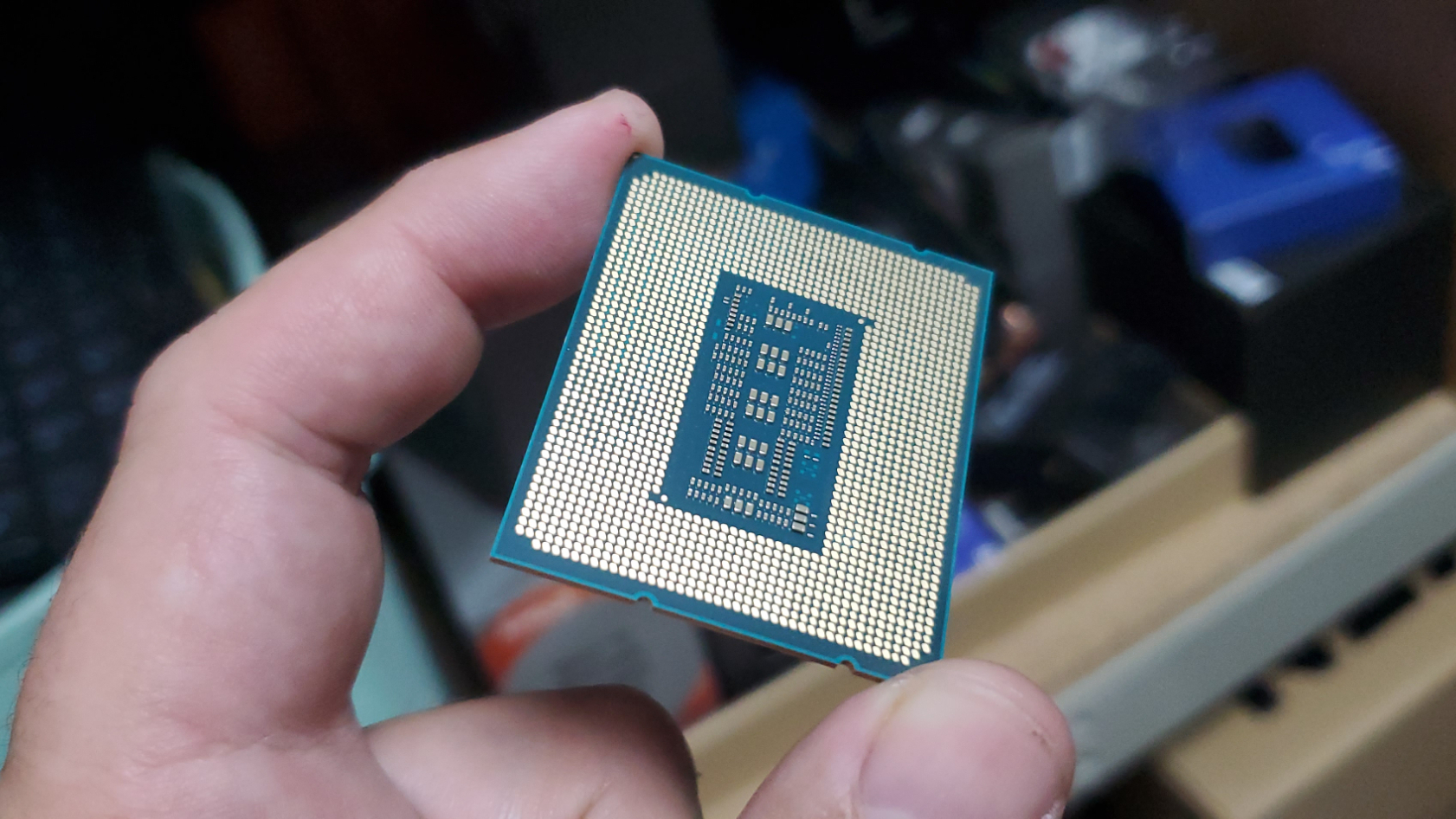Boo, Intel's faux 14th Gen isn't going to deliver the peak cheap gaming CPU we were teased with
Pour one out for the 14-core budget chip that got away.

Aww, it was looking so good for a second there; for the briefest moment it looked like Intel was going to make its Raptor Lake Refresh range of processors really count. Sadly, it seems like, aside from a barely relevant 200MHz clock speed bump on the upcoming 14th Gen chips, we're not going to see the major re-spec of the new CPU lineup earlier rumours had promised.
We reported a few weeks ago on the supposedly leaked core counts of the new range of Intel processors which had been presented by a RedGamingTech video. It claimed the Raptor Lake Refresh was going to deliver higher core counts, almost across the entire CPU stack.
And those promised extra cores weren't supposed to be just the lower-rent Efficient cores either, with a selection of 14th Gen chips actually getting higher Performance core counts, too.
The most exciting of which, as has been recent Intel passim, was down at the lower end of the stack. The proposed Core i5 14400 was set for a bump up to 14 cores and 20 threads, and the Core i5 14100 listed as being a pure six-core, 12-thread chip. Both those low-end Core i5 processors would make for potentially outstanding gaming CPUs, and you'd have to be doing some serious productivity work to really need anything more high-spec.
Unfortunately, it's now looking as though those initial rumours could be incorrect as another leaker has presented claimed 14th Gen core counts and clock speeds (via Videocardz) suggesting that it's more or less going to be back to the 13th Gen status quo when it comes to how many cores you can expect as you go down through the range.
Up top, as was always suggested, is the 24-core, 32-thread Core i9 14900, which ostensibly remains the same. These latest specs corroborate the notion of the Core i7 chips getting a handful of extra Efficient cores, now offering 20 cores and 28 threads, but below that the core counts reportedly now remain the same.

Obviously, these are rumours countering rumours, and as such it's hard to know exactly who has the true specifications for the unannounced range of processors, but the latest details look more realistic.
Keep up to date with the most important stories and the best deals, as picked by the PC Gamer team.
I would have loved Intel to go hard on bumping up the core counts of its upcoming Core i5 range of chips, but that's not hugely sustainable. AMD made a name for its Ryzen processors, on one hand by making them effective and reliable number crunchers, but also by beating its rivals on core count at different pricing levels. For Intel to come back and do the same has a certain combative symmetry, but at this point would only set itself up for a fall.

Best CPU for gaming: The top chips from Intel and AMD.
Best gaming motherboard: The right boards.
Best graphics card: Your perfect pixel-pusher awaits.
Best SSD for gaming: Get into the game ahead of the rest.
The Raptor Lake Refresh, or 14th Gen Core processors, are as the name suggests just a mild tweak of the existing 13th Gen chips, and barely even deserve to be titled as a whole new 'generation' of processors. Increasing the core counts, however, would be a way to make this new generation more interesting while we wait for the big change, the Arrow Lake CPUs coming in 2024.
But increasing the core counts of its entire stack now would make it very hard to row back for the next generation and drop them back down again. It's just not a good look for a new generation of chips you want to seem like the biggest and baddest to actually be going in the opposite direction in terms of core specs. That's something Intel has dealt with before when going from 10 cores with the Core i9 10900K back to the eight cores of its subsequent Core i9 11900K flagship. And it didn't go great.
So, while from a consumer point of view, it's kinda disappointing the RedGamingTech rumours seeming to be false, it's not a huge surprise.

Dave has been gaming since the days of Zaxxon and Lady Bug on the Colecovision, and code books for the Commodore Vic 20 (Death Race 2000!). He built his first gaming PC at the tender age of 16, and finally finished bug-fixing the Cyrix-based system around a year later. When he dropped it out of the window. He first started writing for Official PlayStation Magazine and Xbox World many decades ago, then moved onto PC Format full-time, then PC Gamer, TechRadar, and T3 among others. Now he's back, writing about the nightmarish graphics card market, CPUs with more cores than sense, gaming laptops hotter than the sun, and SSDs more capacious than a Cybertruck.

